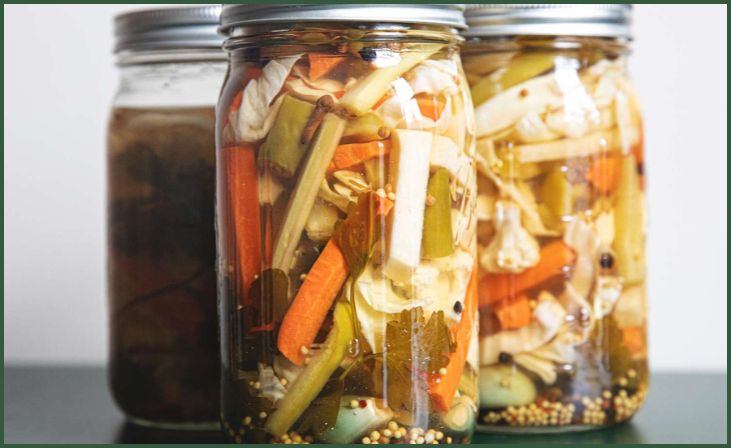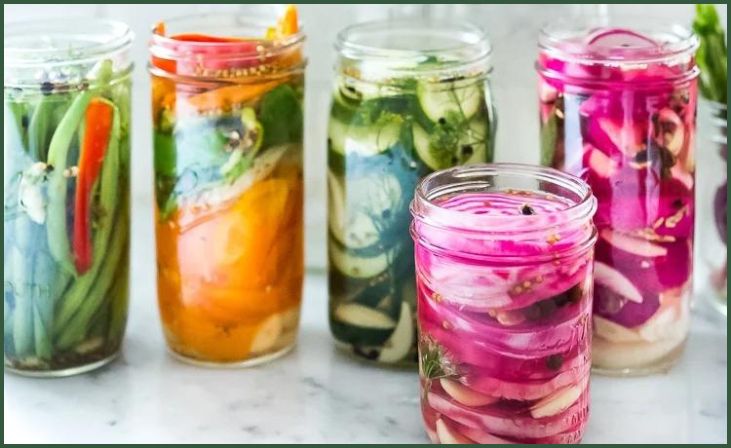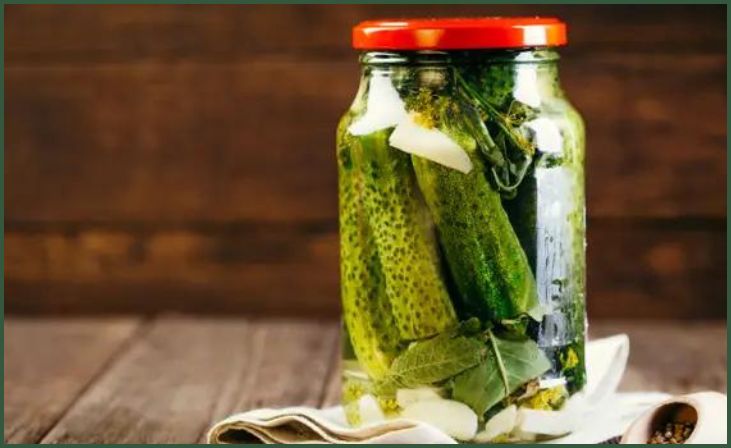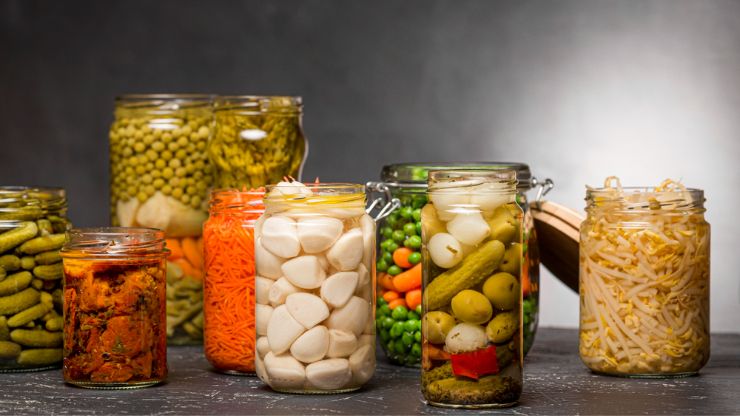When it comes to flavorful, crunchy, and tangy pickled vegetables, the United States offers a delightful array of options. In this article, we aim to whisk you away on a culinary adventure, delving deep into the diverse world of pickled vegetables crafted within the USA. From the timeless classic of cucumber pickles to the more exotic and unique choices, we’ll navigate the expansive variety and rich history of these delightful treats. Join us as we peel back the layers of this savory world and uncover the secrets behind these mouthwatering morsels that have enamored the palates of countless individuals.
Table of Contents
ToggleWhat Are Pickled Vegetables?
Pickled vegetables are a flavorful and tangy culinary delight created by preserving various vegetables in a solution typically consisting of water, vinegar, salt, and a combination of spices and seasonings. This preservation method imparts a unique and savory taste to the vegetables while extending their shelf life.
Also Read:- Pickled Watermelon Rind Made in America
The process of pickling vegetables involves immersing them in the pickling solution, allowing them to ferment or steep in the brine, which infuses them with a distinctive blend of flavors. As a result, pickled vegetables exhibit a characteristic balance of sourness, sweetness, and a medley of spices, making them a versatile and delicious addition to a variety of dishes.
Pickled vegetables come in a wide range of flavors and textures, from the crispness of cucumber pickles to the tender, tangy notes of pickled beets or the spicy kick of pickled jalapeños. They can be enjoyed on their own as a satisfying snack, used as condiments to enhance the flavors of sandwiches, burgers, and hot dogs, or incorporated into salads, stews, and even cocktails.
The art of pickling vegetables is not only a method of preserving produce but also a means of elevating their taste and adding an exciting dimension to culinary experiences. Whether you’re savoring a classic dill pickle or exploring the world of artisanal and regional variations, pickled vegetables offer a delightful and diverse gastronomic journey for food enthusiasts of all tastes and preferences.
Pickled Vegetables Made in the USA
The Pickling Tradition

Pickling, a time-honored culinary technique, stands as a testament to the ingenuity of preserving and elevating the flavors of vegetables. This tradition has been lovingly handed down through the ages in the United States, weaving itself into the fabric of American culinary culture. The art of pickling is a living legacy, a bridge that connects generations to the rich history of preserving nature’s bounty.
Don't just scroll, subscribe!
BuzzTrail's unique web-stories are the cure for boredom you've been waiting for.
American Pickling Styles
The United States boasts a tapestry of pickling styles that mirror its multicultural influences. From the delightful juxtaposition of sweet and spicy found in bread and butter pickles to the bold, bracing tang of dill pickles, there exists a pickle to cater to every discerning palate. The diversity in American pickling styles is a testament to the country’s commitment to offering a little something for everyone.
Regional Variations

Across the expanse of the USA, each region imparts its own unique twist to the art of pickling vegetables. In the Southern United States, pickled okra reigns supreme, showcasing a distinct blend of flavors and textures. Meanwhile, in the heart of the Midwest, a robust tradition of pickling peppers has taken root. Exploring these regional variations unveils a tantalizing array of tastes and ingredients, each a reflection of the local culture and heritage.
Artisanal Pickle Producers
In recent years, a resurgence of small-batch and artisanal pickle producers has captured the hearts of discerning consumers. These dedicated artisans place emphasis on quality and innovation, sourcing their ingredients from local farms and communities. Their craft extends beyond the ordinary, introducing unique flavor profiles and imaginative combinations. This newfound appreciation for artisanal pickles has given rise to standout brands that are making waves across the nation.
Health Benefits
Beyond their delectable flavors, pickled vegetables offer a host of health benefits. Low in calories yet rich in fiber, they stand as a nutritious addition to any diet. Packed with essential vitamins and minerals, these tangy treats provide a wholesome boost to overall well-being. Exploring the healthful advantages of pickled vegetables is an invitation to indulge in a guilt-free culinary experience.
Also Read:- Pickled Asparagus
Making Your Own Pickles

Ever considered creating your pickled food at home? We’re here to guide you through the process, step by step. It’s a delightful and fulfilling endeavor, allowing you to tailor the pickling experience to your own unique taste preferences. Unleash your creativity in the kitchen and savor the satisfaction of crafting pickles that are truly your own.
Conclusion
Pickled vegetables made in the USA are not just a tasty treat; they are a testament to the country’s diverse culinary heritage. From classic favorites to artisanal creations, there’s a pickle for everyone. Whether you savor them as a snack, condiment, or side dish, pickled vegetables add flavor to any meal. So, why not explore the world of pickled vegetables and savor the unique tastes they offer? Get ready to embark on a delightful journey through the world of pickles.
FAQs
Are pickled vegetables healthy?
Are pickled vegetables healthy?
Yes, pickled vegetables can be a healthy snack when consumed in moderation. They are low in calories and high in fiber, making them a great addition to your diet.
What’s the difference between dill and bread and butter pickles?
What’s the difference between dill and bread and butter pickles?
Dill pickles have a more pungent, sour taste, while bread and butter pickles are sweeter and less tangy. The choice between them is a matter of personal preference.

